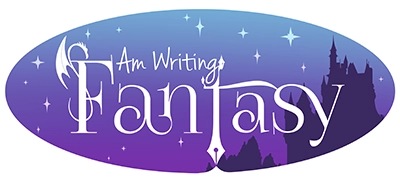Many authors write in multiple genres – often using pen names and different websites (which will be a topic on a future post!). But there is more to switching between books of different genres than keeping the characters and storylines straight. Genres contain defining characteristics in tone, language, and plot. Keeping the ‘feel’ correct is the challenge.
What You'll Learn
Why do it?
When I was writing the last chapters of the final book of my epic fantasy trilogy a year ago, I was itching to tackle something different. Words like ‘darker,’ and ‘more mature’ spring to mind to describe what I was looking for. Which was great, as I had already decided to write Friends of my Enemy, which is dark fantasy/ military dystopian. And the two stories could not be much more different.
The epic fantasy trilogy easily classifies as young adult. It has all the trappings of the genre: a diverse fantasy world, magic, and massive battles. The dark fantasy is set in our near future and is rife with government conspiracies, military strategy, adult themes, and has absolutely no magic. Intelligence and bribery will get you farther in Friends of my Enemy than trying to cast a spell.
And when I started writing a new epic fantasy while working on Friends of my Enemy, it too filled a part of my brain that felt lacking after a summer of only serious, adult driven plotting. What a relief to call on magic to cover distances instead of calculating speed of a jet between Argentina and Europe! Plus I’d been missing the optimism inspired by epic fantasy where friendship will somehow trump evil. Good and evil aren’t so easily defined in Friends of my Enemy.
So the why comes down to filling a need. My mind craved a break from either too much dark or too much light. But what does that mean?
Understand the differences between the genres
The language of epic fantasy is more descriptive and more positive compared to adult-oriented dark fantasy.
In epic fantasy, there is the space to feel the wind in your hair. It soars with the hope of overcoming great challenges. The journey can be difficult, but a means to succeed will be found. That sense of adventure, friendship, exploration, and optimism is what I love about epic fantasy. And putting that into the story through the inclusion of exotic smells, describing amazing vistas, rescuing friends – even ones who used to be enemies, while weaving in clues on a building confrontation is what I like about writing it.
But what I like about dark fantasy, and I used ‘dark’ as a descriptive for subject matter as well as tone, is the crisp and concise language. Words have weight and impact, just like the dire struggles where friends betray for selfish interests, and family ties may be what hang a character. But not everyone is hideous, even if no one is perfect. And one small decision can end up rippling outward to bring down a government – or support a conspiracy. Nothing is upfront in Friends of my Enemy. Writing it is like standing is a 3D spider’s web: mesmerizing and a challenge to write.
So when I say writing epic fantasy for three solid years made me feel too light, I mean that it made me feel a little too optimistic. I was not thinking critically. I’ve read enough blogs and reviews to firmly believe epic fantasy characters need a bit more anxiety and posttraumatic stress. So I include those impacts in my stories. But the characters will pull through. They simply have to. If not, I’d be writing a different genre.
And writing dark fantasy, well I realized halfway through the summer that I’d started swearing more. And craving beer. I was more sarcastic too. Where writing epic fantasy makes me want to travel and cook the strangest meals imaginable for dinner, dark fantasy makes me break out the wine and want to roast something… slowly… on a spit. Either I need to find a genre in-between (mystery? thrillers?), or I need to write both at the same time to maintain a personal balance. Which isn’t always easy…
Problems
There were days I relished switching between the two storylines. It was like I’d had too much sugar and needed a three course meal. Or I felt like if I had to plot another innuendo to be squeezed from a character’s remark I would scream. Those were the days when bouncing genres felt perfect.
There are also days where I felt stuck with the imagery and tone of one genre over the other. I found myself writing a dire, slightly malicious thought, and knew it better fit dark fantasy than epic. Or there were times when I glossed over consequences in Friends of my Enemy, knowing that isn’t at all how that story develops. But I just couldn’t get myself in the mood for the story I had in front of me, so the words muddled.
But I wanted to keep both stories moving. If I dropped one, I’d lose my place in what I was currently writing, as well as some of the developing plot lines. No matter how many notes I might write about a work in progress, much of it remains in my head. Shelving a story for even a short time can erase the momentum. So I had to develop methods to keep going…
Tips to help
If you want to switch genres, especially while working on concurrent stories in different genres, staying clear on the overall theme and feel is important. I’m very auditory, so music is great. Sweeping scores set the mood for epic fantasy. Enya, Loreena McKennitt, Wailin’ Jennys – I’d put on a play list and fall into it. For dark fantasy, I might be listening to something by Fever Ray, to Tori Amos, Pieta Brown, or Lady Gaga. Whatever it took to set the mental mood of struggles and challenges, consequences and betrayals.
Rereading what I wrote the last time I’d sat down with the story is great to get going again, but it might not inspire the right feel if I wasn’t mentally ready. Instead, reading a favorite writing sample, something a few paragraphs long, that captures the essence of the genre helped to reset language and word choice issues. It could be something I wrote, or something from a favorite story by another author. But keeping a good writing sample handy helped switch the brain to the correct genre and into writing mode.
And sometimes a simple list of keywords that define aspects of the genre can help. Review these whenever the scene feels like it is getting off track as a quick reset for tone. Even keeping an image handy that inspires the correct mood helps. Change desktop colors or images, the view out the window, or put a picture in the blank spot where you stare when you can’t think of a word… set the tone in your workspace to let it flow into your writing.
The goal is that the reader won’t know that I was just writing an epic fantasy story before I switched to a chapter of Friends of my Enemy. They should stand apart as completely different storylines, characters, and genres. The same sentence should never exist in both novels. Otherwise, it would just be recycling the writing with different packaging. And that isn’t my intention!
Do you write in different genres? If so, how do you keep them differentiated? And if you don’t, would you?











0 Comments